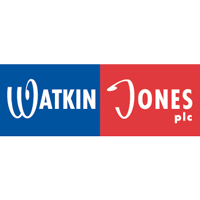Zeus Capital Equity Research Director Andy Hanson caught up with DirectorsTalk for an exclusive interview to discuss Watkin Jones PLC (LON:WJG)
Q1: So we’re talking about the Watkin Jones Group who today successfully listed on the London Stock Exchange’s AIM market, what can you tell us about the history of the business and how long has it been involved in the student market?
A1: The business has a very long trading history, it’s been involved in construction and house building since 1791 so it’s a little bit unusual for businesses that come to AIM to have that sort of track record of performance. Bringing this more up to date, in the 1990’s the business began to expand and started to do large commercial construction projects, doing a lot of work for Tesco and also helped in the roll out of the Premier Inn brand around the country. It actually did its first student project back in 1999 and that at the time was purely a construction project, the business model has moved on since then and in the last sort of 3 years, between 2012 and 2015, they’ve completed 25 projects equating to about 7,500 beds.
Q2: What makes the Watkin Jones PLC offering different from its peers?
A2: It’s a good question and I think the main point of difference for Watkin Jones is the forward sales model that it implies. So to sort of condense the business model down to quite simply: Watkin Jones will go out and find a site that they want to build on, they will put a deposit down on that site, usually 5-10% of the value of the site, the deposit will be contingent on getting planning permission and I would add that they’ve never not got planning permission on a site they’ve put a deposit down on, they will then take that project through the planning process with the aim of getting planning permission and once they get that planning permission, they will try to back-to-back it that I mean they will try to buy the land at the same time that they forward sell the project to an institutional investor. That is quite a different model to most property developers who will hold land for between 5 and 20 years, it also has the added benefit of being very positive in terms of working capital and it also provides a very high degree of visibility on earnings.
Q3: So how do you see the student accommodation market developing?
A3: Well the market’s obviously been very strong over the last few years and we’ve seen people like Unite come into the market and be very successful. There’s a number of points here which makes me believe that the market will remain a good market for years to come, firstly UK universities remain highly ranked globally and this continues to drive overseas students into the UK, this has been helped by the removal of the cap on the number of students that can study at UK universities, also yields on student accommodation remain very attractive, relative to other property classes, and I would also point out that the sort of third party purpose-built student accommodation that Watkin Jones PLC provides is still only about 7% of the market and whilst it’s been growing strongly, at about 9% compound for the last 4-5 years, there’s still a lot growth if we can see that 7% move to 10% or 15% which I can see happening over the next 5-10 years.
Q4: What made the deal so popular with the institutional investors?
A4: A few things really, I think the earnings visibility from the forward sales model, we think to the year-end September we think 80-90% of the gross profit has already been attained for this year so that provides a high degree of confidence that you don’t normally get from IPO’s so institutional’s have liked that kind of visibility and that rolls into full year ’17 and full year ’18 as well. A big defining sector is from the dividend yield of 6% despite the recent gyration in the market with yields decreasing on the back of share price declines, 6% is still a very attractive yield and we’re forecasting 5% annual growth on that 6% so a very good level of yield and also just generally the growth in the business over the forecast period.


